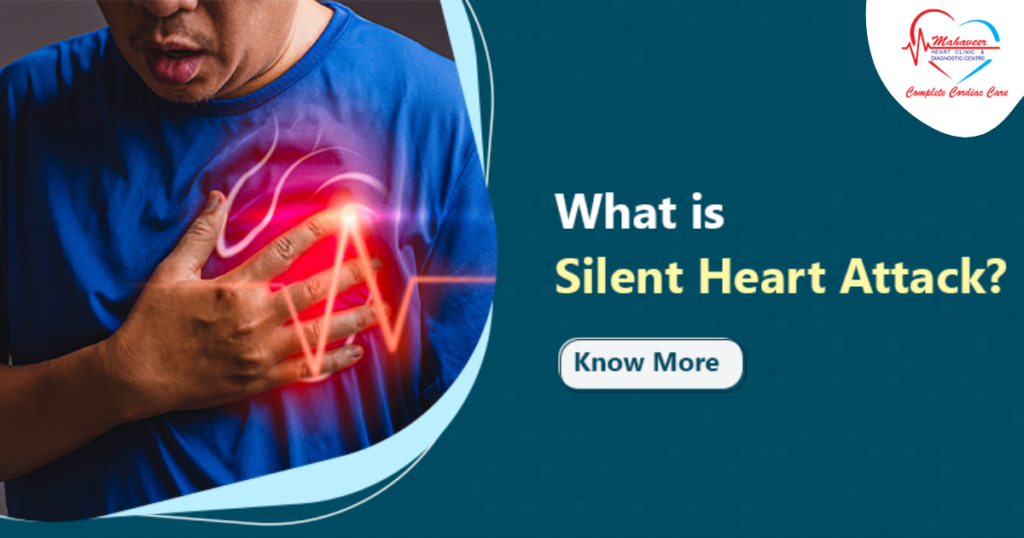Many often, people don’t realize that they are suffering from a silent heart attack until the Best cardiologist Doctor in MP finds cardiac damage. Finding a silent heart attack can be challenging if there are any missing indications or symptoms that are often unrelated to a heart attack. But just like any other heart attack, it still has negative effects.
What is a Silent Heart Attack?
The Best cardiologist Doctor in MP says that When a heart attack has no symptoms, little symptoms, or signs that others don’t associate with a heart attack, it is referred to as being “silent.” A heart attack often referred to as a myocardial infarction, is when the heart isn’t receiving enough oxygen. This causes heart damage.
Typically, a blood clot prevents blood from passing through one of the coronary arteries, which results in a heart attack. A coronary artery might occasionally stop your blood flow.
Heart attacks can occur whether you are awake or asleep. They may occur when:
- You’ve just experienced intense physical or emotional stress.
- You rapidly start moving around more.
- You exercise outside in the chilly weather.

Signs and Symptoms of Silent Heart Attack: –
People who experience a silent heart attack exhibit minor or nonexistent symptoms, as well as symptoms not typically related to a heart attack. They might not be conscious of having a heart attack.
There are following signs and symptoms of a silent heart attack by the Best cardiologist Doctor in MP are as follows: –
- You’ve got the flu.
- Your upper back or chest muscles are painful.
- You feel pain in your upper back, arms, or jaw.
- You’re feeling tired.
- You’re feeling uncomfortable.
Other Symptoms of a Heart Attack may include: –
- Chest discomfort that persists for a long time.
- Breathing difficulty.
- Your upper body is uncomfortable.
- Lightheadedness.
- Cold sweats
- Vomiting and nausea.

Risk factors of Silent Heart Attack
Dr. Rakesh Jain the Best cardiologist Doctor in MP suggests some risk factors that can put you at a high risk of developing a heart attack may include: –
- Overweight.
- Avoiding regular exercises
- High Blood Pressure.
- High Cholesterol.
- Eating a lot of foods that have high in cholesterol, and salt.
- Feeling Stress or Depressed.
- Using Tobacco and alcohol.
There are several factors that increase your risk of having a heart attack, but you cannot control them. These consist of:
- Having a family history of heart disease.
- Having pregnancy-related pre-eclampsia
- Exceeding the age of 45 (males).
- Being older than 55 or postmenopausal (females).
How to Prevent the Silent Heart Attack?
According to the Best cardiologist Doctor in MP heart disease and stroke are responsible for around 200,000 recorded fatal cases. However, there are some everyday adjustments that you can make to lower your chance of having a heart attack. In the future even if you have risk factors for heart disease or have already had one. Note that you must schedule an appointment with the Best cardiologist Doctor in MP right away if you see any of the aforementioned symptoms becoming chronic.
Here is a list of things to take to prevent heart attacks in addition to medical treatment:
- Stop smoking.
- Avoid or give up drinking alcohol.
- Maintain a healthy, balanced diet and engage in frequent exercise.
- Keep your weight at a suitable and healthy level.
- Manage diabetes, poor cholesterol, high blood pressure, and other medical conditions.
- Eliminate stress.

Test To Diagnose a Silent Heart Attack – Best Cardiologist Doctor in MP
A silent heart attack is frequently discovered weeks or months after it occurs by:
- Exam of the body.
- A blood test.
- (ECG/EKG) Electrocardiogram.
- Coronary angiography.
- CT scan
- Magnetic resonance imaging (MRI).
- Stress test with exercise.
- Test for nuclear stress.
- Echocardiogram.


